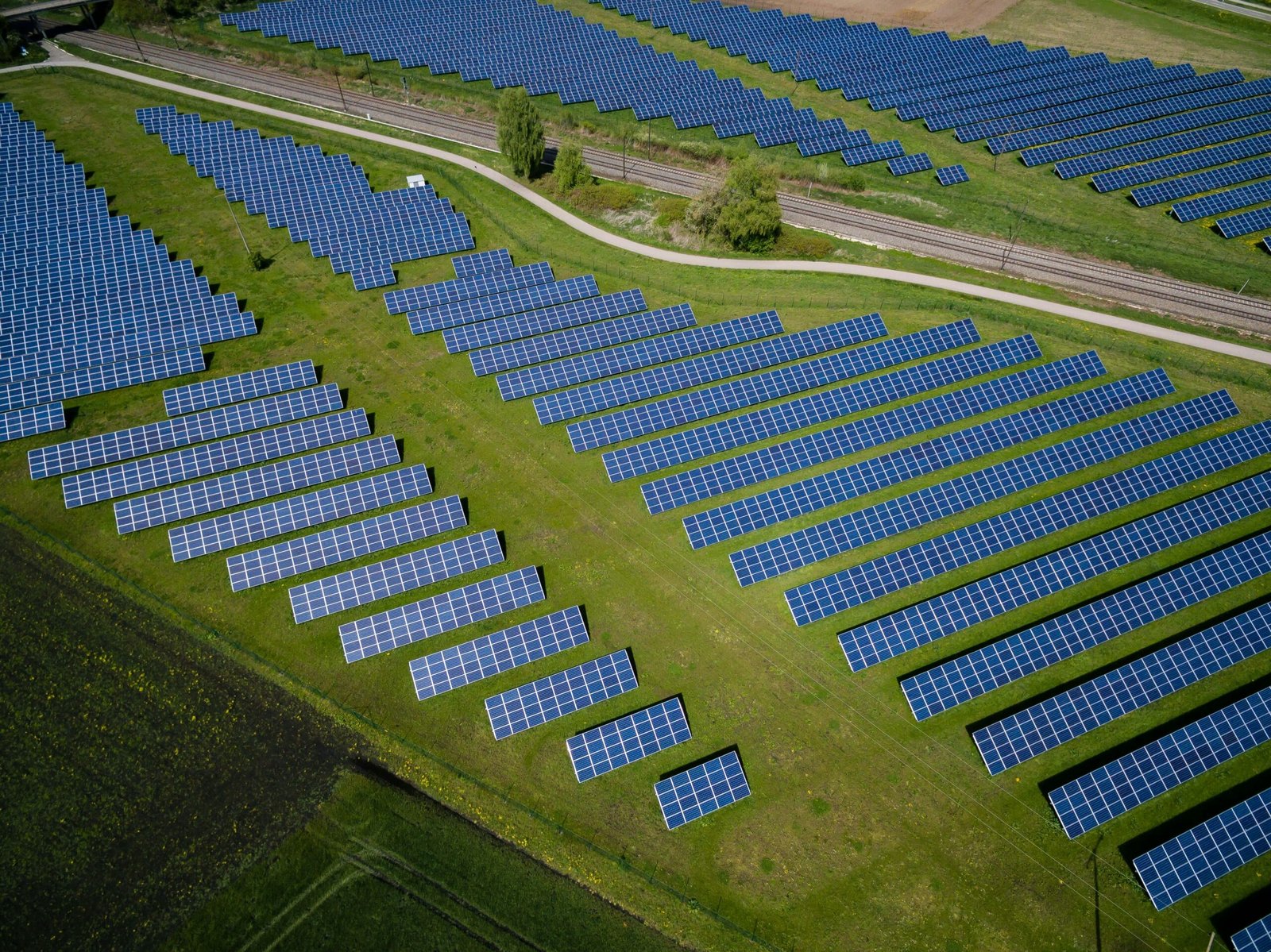Renewable resources have become increasingly important in our modern world as we strive to find sustainable solutions to meet our energy needs. Unlike their non-renewable counterparts, renewable resources offer a multitude of benefits that are not only environmentally friendly but also promote a human-centric approach to energy production. In this article, we will explore the advantages of renewable resources and highlight how they contribute to a more human-friendly future.
1. Environmental Sustainability
One of the key advantages of renewable resources is their inherent sustainability. Unlike fossil fuels, which are finite and contribute to greenhouse gas emissions, renewable resources such as solar, wind, hydro, and geothermal energy are naturally replenished and have minimal environmental impact. By harnessing these resources, we can reduce our reliance on non-renewable sources and mitigate the negative effects of climate change.
2. Energy Independence
Renewable resources offer the potential for greater energy independence. Unlike fossil fuels, which often require importing from other countries, renewable energy can be generated domestically. This reduces our dependence on foreign energy sources and strengthens national security. Additionally, renewable resources can be harnessed locally, providing communities with more control over their energy production and distribution.
3. Job Creation
The transition to renewable resources has the potential to create numerous job opportunities. As the demand for renewable energy technologies grows, so does the need for skilled workers in fields such as solar panel installation, wind turbine maintenance, and hydroelectric power plant operation. These jobs not only provide employment but also contribute to local economic development and stimulate innovation.
4. Improved Public Health
Renewable resources have a positive impact on public health. Unlike fossil fuel power plants, which emit harmful pollutants such as sulfur dioxide and particulate matter, renewable energy sources produce clean and emissions-free electricity. By reducing air pollution, renewable resources help to mitigate respiratory diseases, cardiovascular problems, and other health issues associated with poor air quality. This leads to improved overall public health and a higher quality of life.
5. Energy Affordability
Renewable resources offer the potential for more affordable energy. The costs of renewable energy technologies, such as solar panels and wind turbines, have been steadily decreasing over the years, making them more accessible to individuals and businesses. Additionally, renewable resources provide the opportunity for decentralized energy production, allowing communities to generate their electricity and reduce their reliance on expensive centralized power grids.
6. Technological Advancements
The adoption of renewable resources has spurred technological advancements in the energy sector. As we continue to explore and develop renewable energy technologies, we are driving innovation and pushing the boundaries of what is possible. This not only benefits the renewable energy industry but also has a ripple effect on other sectors, leading to advancements in energy storage, electric vehicles, and smart grid technologies.
7. Long-Term Economic Stability
Investing in renewable resources offers long-term economic stability. Unlike fossil fuels, which are subject to price volatility and depletion, renewable resources provide a stable and predictable source of energy. By diversifying our energy portfolio and reducing our reliance on non-renewable sources, we can create a more resilient and sustainable economy that is less susceptible to market fluctuations and geopolitical tensions.
In conclusion, renewable resources offer numerous advantages that promote a human-friendly approach to energy production. From environmental sustainability and energy independence to job creation and improved public health, the benefits of renewable resources extend far beyond their positive impact on the environment. By embracing renewable energy technologies, we can pave the way for a more sustainable and prosperous future for generations to come.
In today’s world, renewable resources have become increasingly important as we seek sustainable solutions to meet our energy needs. Renewable resources offer numerous benefits that are not only environmentally friendly but also promote a human-centric approach to energy production. In this article, we will delve into the advantages of renewable resources and highlight how they contribute to a more human-friendly future.
1. Environmental Sustainability
Renewable resources have an inherent advantage in their sustainability. Unlike non-renewable resources such as fossil fuels, which are finite and contribute to greenhouse gas emissions, renewable resources such as solar, wind, hydro, and geothermal energy are naturally replenished and have minimal environmental impact. By harnessing these resources, we can reduce our reliance on non-renewable sources and mitigate the negative effects of climate change. The use of renewable resources could help reduce the carbon footprint, stop pollution, and conserve natural resources.
2. Energy Independence
Renewable resources offer the potential for greater energy independence. Unlike fossil fuels, which often require importing from other countries, renewable energy can be generated domestically. This reduces our dependence on foreign energy sources and strengthens national security. Additionally, renewable resources can be harnessed locally, providing communities with more control over their energy production and distribution. The use of renewable resources can support local economies and reduce the need for costly imported energy.
3. Job Creation
The transition to renewable resources has enormous potential to create numerous job opportunities. As the demand for renewable energy technologies grows, so does the need for skilled workers in fields such as solar panel installation, wind turbine maintenance, and hydroelectric power plant operation. These jobs not only provide employment but also contribute to local economic development and stimulate innovation. The renewable energy industry is expected to create millions of jobs worldwide.
4. Improved Public Health
Renewable resources have a significant impact on public health. Unlike fossil fuel power plants, which emit harmful pollutants such as sulfur dioxide and particulate matter, renewable energy sources produce clean and emissions-free electricity. By reducing air pollution, renewable resources help to mitigate respiratory diseases, cardiovascular problems, and other health issues associated with poor air quality. This leads to improved overall public health and a higher quality of life. The use of renewable resources can reduce the incidence of diseases related to air pollution and improve health outcomes.
5. Energy Affordability
Renewable resources offer the potential for more affordable energy. The costs of renewable energy technologies, such as solar panels and wind turbines, have been steadily decreasing over the years, making them more accessible to individuals and businesses. Additionally, renewable resources provide the opportunity for decentralized energy production, allowing communities to generate their electricity and reduce their reliance on expensive centralized power grids. The integration of renewable resources can help reduce energy costs and make energy more accessible to low-income communities.
6. Technological Advancements
The adoption of renewable resources has spurred technological advancements in the energy sector. As we continue to explore and develop renewable energy technologies, we are driving innovation and pushing the boundaries of what is possible. This not only benefits the renewable energy industry but also has a ripple effect on other sectors, leading to advancements in energy storage, electric vehicles, and smart grid technologies. The use of renewable resources can stimulate technological advancements and support the growth of other industries.
7. Long-Term Economic Stability
Investing in renewable resources offers long-term economic stability. Unlike fossil fuels, which are subject to price volatility and depletion, renewable resources provide a stable and predictable source of energy. By diversifying our energy portfolio and reducing our reliance on non-renewable sources, we can create a more resilient and sustainable economy that is less susceptible to market fluctuations and geopolitical tensions. The use of renewable resources can help create a more stable and sustainable economy that benefits future generations.
In conclusion, renewable resources offer numerous advantages that promote a human-friendly approach to energy production. From environmental sustainability and energy independence to job creation and improved public health, the benefits of renewable resources extend far beyond their positive impact on the environment. By embracing renewable energy technologies, we can pave the way for a more sustainable and prosperous future for generations to come.


